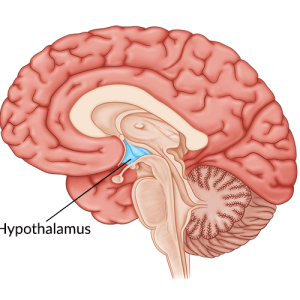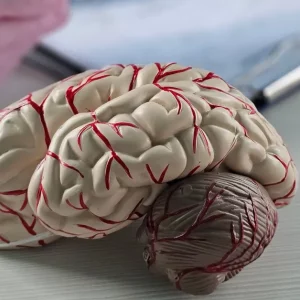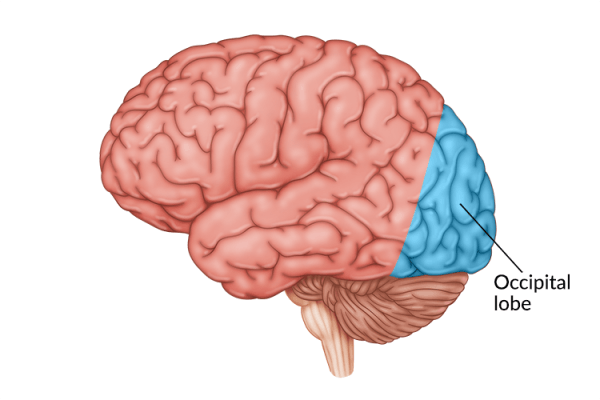Long-term effects of mild traumatic brain injury can be physical, cognitive, and/or emotional. Symptoms such as dizziness or depression can last for a few months or sometimes even years after the initial injury. When the effects of mild traumatic brain injury last for three months or more, it is referred to as persistent post-concussion syndrome.
Although experiencing long-term effects of mild traumatic brain injury can be discouraging, there is hope for recovery through neuroplasticity, the brain’s natural ability to heal itself, and the effective management techniques discussed in this article. These evidence-based methods can help reduce TBI symptoms years after injury and promote a swifter recovery.
This article will discuss the various long-term effects of mild traumatic brain injury and effective ways to manage the symptoms.
Use the links below to jump directly to any section.
What Is a Mild Traumatic Brain Injury?
A mild traumatic brain injury is defined as a closed head injury that results in a loss of consciousness and/or disorientation, typically lasting less than 30 minutes. A mild traumatic brain injury is often synonymous with a concussion, and many practitioners use the terms concussion and mild TBI interchangeably.
While many believed that mild traumatic brain injuries had few lasting consequences, recent studies have shown the opposite. Post-concussion syndrome, which refers to when secondary effects of mild TBI last beyond the initial injury, is believed to affect between 11 and 82% of those with mild TBI. Due to the possibility of experiencing long-term effects, mild traumatic brain injuries are now taken much more seriously than they once were.
Secondary effects of a mild traumatic brain injury may not be apparent in the immediate aftermath following an injury. Studies show that some survivors may experience delayed onset symptoms, even a year post-injury.
Therefore, if you experience any new or recurring symptoms after your injury, it’s important to contact your doctor immediately. Timely management of secondary effects can help lower the risk of complications and increase the chances of recovery.
Potential Long-Term Effects of Mild Traumatic Brain Injury
Individuals may experience a variety of long-term effects after a mild traumatic brain injury. This can include a combination of physical, cognitive, and even behavioral effects, depending on the areas of the brain affected.
TBI symptoms are not always apparent initially and some may occur months or even years later. Therefore, knowing the different types of long-term effects that can occur is important to help you seek the appropriate care. Be sure to consult with your doctor if you are experiencing any new or recurring symptoms.
Some of the most common long-term effects of mild traumatic brain injury include:
1. Persistent Headaches
Headaches are one of the most common long-term effects of a mild traumatic brain injury. There are four common types of headaches that survivors may experience, including:
- Tension headaches: refer to a tight, squeezing sensation all around the head, usually caused by tightness in the jaw and face.
- Cervical headaches: may feel like tension headaches, however, they are typically caused by an injury to the neck.
- Migraines: are strong, throbbing headaches usually accompanied by nausea and light/sound sensitivity. These severe headaches are caused by vascular changes in the brain, and are one of the most likely types of headaches to linger after the initial injury.
- Neuralgic pain: is a sharp, stabbing, shooting pain, often described as an “ice pick.” These headaches are caused by nerve damage and are usually accompanied by numbness on the scalp.
Headaches after a mild traumatic brain injury can be uncomfortable, painful, and can even interfere with your ability to perform daily activities. Therefore, if you are experiencing headaches after a mild traumatic brain injury it’s important to consult with your doctor. They can provide you with the necessary treatment that is safe and suitable for you.
2. Light Sensitivity
After headaches, light sensitivity (also known as photophobia) is the second most common long-term effect of mild traumatic brain injury. Photophobia is caused by the brain’s inability to adapt to new levels of brightness, which can include various types of lighting like fluorescent lights.
Although light sensitivity usually fades over time, it can persist for 6 months to a year after an injury. Treatment for light sensitivity can often include wearing tinted glasses, which can help to relieve the pain and dizziness caused by the lights.
3. Dizziness
Another frequent symptom of a mild traumatic brain injury is dizziness. There are different types of dizziness that survivors may experience after an injury. Some forms of dizziness can cause imbalance, while others make it feel as if the entire room is spinning, making it difficult to move or walk. Dizziness and imbalance often occur as a result of vestibular dysfunction, or a disturbance to the body’s balance system.
Causes of dizziness after a mild traumatic brain injury can include:
- Migraines
- Dehydration
- Inner ear problems
- A pinched nerve in the neck
- Low blood pressure
Because dizziness may have various causes, every individual will require a personalized treatment plan, which can include vestibular therapy for concussions. Treating the underlying cause of dizziness can help reduce the symptoms and promote recovery.
4. Sleep Disorders or Fatigue
Sleeping disorders such as insomnia (inability to sleep) or post-traumatic hypersomnia (excessive sleeping) may also occur after a mild traumatic brain injury. Individuals with insomnia may feel sleepy throughout the day and restless during the night. Insomnia is also usually accompanied by drowsiness. Alternatively, those with post-traumatic hypersomnia may have 8 to 9 hours of sleep overnight, along with multiple daytime naps. Along with sleep disorders, fatigue is a frequently reported long-term effect of mild traumatic brain injury, affecting up to 70% of TBI survivors. While these long-term effects are common after a mild traumatic brain injury, they can interfere with a good night’s rest and overall recovery.
If you experience fatigue, have difficulty sleeping at night, or feel you are sleeping excessively during the day, consult with your doctor to find an appropriate treatment. They can provide you with management techniques to help you overcome sleeping disorders and/or fatigue after a brain injury.
5. Mood Swings
When the areas of the brain that regulate emotions, such as the frontal lobe, are affected by a mild TBI, it can result in extreme mood swings. The frontal lobe plays an important role in problem-solving, impulse control, and reasoning skills. After a mild traumatic brain injury, these skills can become impaired and lead to feelings of anger, aggression, frustration, and other emotional problems.
For this reason, individuals may be easily irritated and quicker to display anger than before the injury. It’s important for friends and family to understand that these emotional changes are likely not intentional and may be out of the survivor’s control. Fortunately, as the brain heals, survivors may begin to regain control of their emotions again, but it will require time and patience.
6. Cognitive Impairments
Long-term effects of a mild traumatic brain injury may also affect cognitive skills, depending on the areas of the brain affected. For example, damage to the frontal lobe or prefrontal cortex can cause difficulty with learning, short-term memory, attention, and other executive function skills like decision-making after a brain injury.
Fortunately, these skills can be restored through cognitive rehabilitation exercises. Practicing cognitive skills will help stimulate the brain and activate neuroplasticity, which helps strengthen the neural connections for that skill.
7. Depression & Anxiety
A mild traumatic brain injury can also trigger feelings of depression and anxiety. Studies found that 1 in 5 mild TBI survivors developed depression or other mental health symptoms within 6 months of their injury. To lower the risk of developing anxiety or depression after a TBI, it helps to understand the signs and seek the appropriate care.
Some unique signs of depression may include:
- Fatigue
- Weight loss or gain
- Excessive crying or irritability
- Lack of interest in usual activities
- Feelings of hopelessness
Symptoms of depression can often be overlooked as typical TBI symptoms, making it difficult to diagnose. Therefore, if you are experiencing any symptoms of depression or anxiety, it’s important to consult with your doctor. They can provide you with the proper management techniques to help you overcome these long-term effects of a mild traumatic brain injury.
How to Treat Long-Term Effects of a Mild Traumatic Brain Injury?
Recovering from a mild traumatic brain injury may take some time. Fortunately, there are many evidence-based ways to promote a swift recovery. However, because every mild traumatic brain injury is different, most individuals will require a combination of different methods to treat the long-term effects.
Some effective ways to treat the long-term effects of a mild traumatic brain injury include:
- Cognitive rest: After a mild traumatic brain injury, the brain devotes most of its energy toward healing itself, leaving fewer cognitive resources to perform other actions. To help the brain, it’s important to practice cognitive rest. This means avoiding all mentally taxing activities, such as driving, studying, or using smartphones and computers. As the brain heals, you can gradually increase activity again.
- Regularly participate in light exercise: Low-impact exercise, such as low-intensity walking, can help reduce symptoms of a mild traumatic brain injury and shorten recovery time. Thus, it’s important to try to exercise as much as possible after a TBI to promote recovery.
- Eat healthy brain foods: Consuming foods that help heal the brain after a concussion, such as foods rich in omega-3 fatty acids and antioxidants, can help reduce long-term effects. Brain foods like blueberries and fatty fish help stimulate the brain and accelerate the healing process.
- Hydrate regularly: Studies show that dehydration can negatively affect physical and cognitive performance and impair the brain’s ability to repair itself. Therefore, to promote a healthy recovery from mild traumatic brain injury, try to drink water regularly throughout the day and consume water-rich fruits to stay hydrated.
- Lifestyle changes: Adapting healthier lifestyle choices can help improve long-term effects such as insomnia or other related sleep disorders. For example, to maintain a proper sleep cycle, you can try waking up and going to bed at the same time each day and making sure that you exercise regularly.
- Natural remedies: Healing the brain naturally can help improve the long-term effects of a mild traumatic brain injury. When exploring natural remedies for TBI recovery, it’s important to look for evidence-based methods and consult with your doctor to ensure they are safe and effective for you.
- Avoid alcohol: Alcohol contains neurotoxins that can further damage your brain cells, which can enhance long-term effects and inhibit your brain’s healing process. Therefore, it’s important to avoid consuming alcohol for at least the first few days after your mild traumatic brain injury.
- Medication: While most long-term effects of a mild traumatic brain injury can be managed naturally, some individuals may benefit from medication. However, it’s important to be cautious of medications that cause daytime drowsiness and cognitive problems. Your doctor can prescribe the appropriate medications that will help improve your symptoms and not interfere with your recovery process.
While these methods have been proven to help improve the long-term effects of a mild traumatic brain injury, it’s important to follow your doctor’s orders and consult with them for more guidance. They can provide you with a unique rehabilitation plan tailored to your condition.
Understanding Long-Term Effects of Mild Traumatic Brain Injury
A mild traumatic brain injury can result in a combination of physical, cognitive, and emotional effects, depending on the areas of the brain affected. These long-term effects of a mild traumatic brain injury can appear months or even years later, which can be uncomfortable and discouraging.
Fortunately, there are many effective ways to improve these effects and promote a swift recovery. The brain is a resilient organ and has the ability to heal itself through neuroplasticity, eventually reducing the symptoms of a TBI.
We hope this article helped you understand the potential long-term effects of a mild traumatic brain injury and how to boost your recovery.









